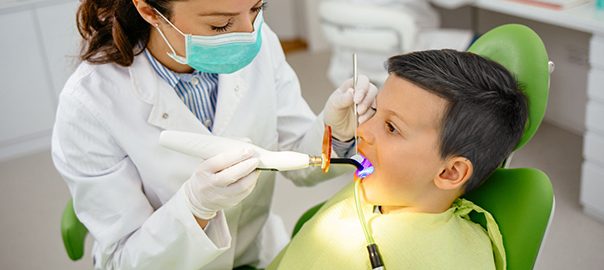As parents, we want the best for our children, and that includes ensuring their good health. While we often focus on physical well-being, it’s important not to overlook the significance of oral health. Proper oral hygiene and preventive dentistry are key to maintaining healthy teeth and gums throughout a child’s life. In this blog, we’ll explore why preventive dentistry for children is so crucial and how it can set the foundation for a lifetime of oral health.
1. Regular Check-ups
One of the fundamental aspects of preventive dentistry for children is regular dental check-ups. These check-ups typically start at a young age, often as early as one year old. These early visits allow the dentist to monitor the development of the child’s teeth and identify any potential issues, such as malocclusions or cavities. Regular check-ups also help children become familiar with the dental office, reducing anxiety and fear associated with dental visits in the future.
2. Dental Cleanings
Professional dental cleanings are an essential part of preventive dentistry for children. Even with diligent brushing and flossing at home, plaque and tartar can accumulate on teeth over time. Dental hygienists use specialized tools to remove these deposits, ensuring that teeth remain clean and free from harmful bacteria. Regular cleanings help prevent gum disease and cavities, promoting overall oral health.
3. Fluoride Treatments
Fluoride is a natural mineral that helps strengthen tooth enamel and makes teeth more resistant to decay. Many children receive fluoride treatments during their dental check-ups. These treatments can come in the form of gels, foams, or varnishes and are applied to the teeth. By incorporating fluoride into a child’s dental care routine, parents can significantly reduce the risk of cavities.
4. Dental Sealants
Dental sealants are another powerful tool in preventive dentistry for children. These thin, protective coatings are applied to the chewing surfaces of molars and premolars, where cavities are most likely to develop. Sealants act as a barrier, preventing food particles and bacteria from getting trapped in the deep grooves of these teeth. They are especially effective for children and can last for several years, offering long-term protection against cavities.
5. Education and Habits
Preventive dentistry also involves educating children about proper oral hygiene habits. Dentists and dental hygienists teach kids how to brush and floss correctly, stressing the importance of daily maintenance. By instilling good oral hygiene practices early in life, parents can help their children develop habits that will serve them well into adulthood.
The Long-Term Benefits
Investing in preventive dentistry for children can yield a host of long-term benefits. Here are some compelling reasons why it’s essential:
- Preventative vs. Restorative: Preventing dental issues is far more cost-effective and less painful than addressing them after they’ve developed. Preventive measures can save both time and money in the long run.
- Overall Health: Oral health is closely linked to overall health. Poor oral hygiene can lead to systemic health problems, including heart disease and diabetes. By taking care of their oral health, children can set a positive foundation for their overall well-being.
- Confidence and Self-Esteem: A healthy smile can boost a child’s self-esteem and confidence. Preventing dental issues helps children maintain a beautiful smile that they can be proud of.
In conclusion, preventive dentistry for children is not just about avoiding trips to the dentist. It’s about setting children up for a lifetime of good oral health and overall well-being. Regular check-ups, dental cleanings, fluoride treatments, and dental sealants are all essential components of preventive dentistry that can help children maintain healthy teeth and gums. So, don’t wait until a problem arises; prioritize your child’s oral health today for a brighter, healthier tomorrow.

